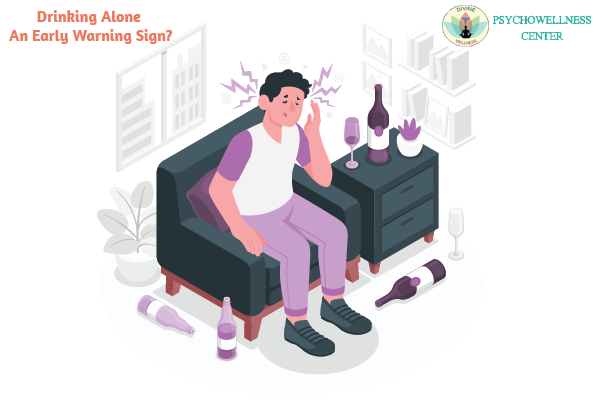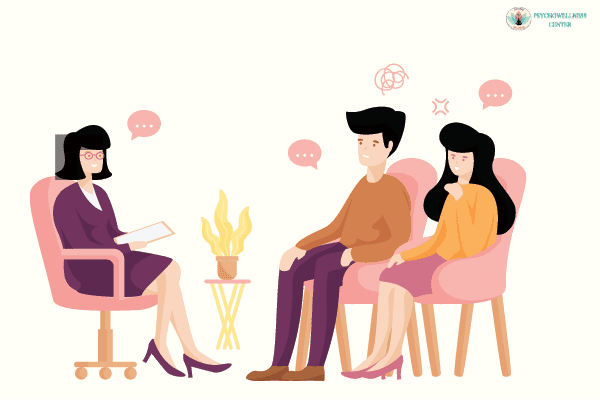Neurotic Disorders Counselling

What is Neurosis?
Obsessive
thinking, worry, distress, and a specific amount of dysfunction in routine
duties are all symptoms of neurosis. Neurotic behavior is caused by neurosis or
neuroticism. One is in a constant state of worry and stress
about every aspect of their life.
Being
neurotic is more commonly connected to being a worrywart or overthinker than
with a mental condition. Nonetheless, neuroticism that is accompanied by
unhealthy coping methods and high-stress settings may escalate to anxiety
disorders if not treated. Seek Online
Counselling
from the best counsellor near me at
TalktoAngel.
What causes one to be
neurotic?
Researchers have discovered a link between neuroticism, mental diseases, and a lower standard of living, but they have not determined the exact cause. Several elements are thought to play a role in the formation of neuroticism.
- Genetics-
- People
with a familial history of neuroticism may be predisposed to it. This is supported by evidence such as:
- Twin
studies reveal that genetic variables influence distinct features of
Neuroticism and other anxiety disorders overlap.
- The
G72 gene, which is involved in glutamate functioning (the neurotransmitter
necessary for healthy brain function), has also been linked to neuroticism,
however, the results are inconsistent.
- Neurotic
genetic research has discovered a minor but glaring discrepancy among one of the serotonin transporter genes related to emotion processing.
- Environment
- The chance of developing neurotic features is connected with both shared surroundings (common to family members) and not shared situations, such as a children's unique classroom.
- A large-scale twin study of over 3,330 Dutch twins discovered that shared environments were inconsequential in predicting future neurotic behavior when compared to unshared environments, implying that events outside your home may have a greater impact. However, gene-environment interactions have been found more important in explaining this than the assumption that common The environment has no impact.
- Neurotic conduct is connected with the following mental health conditions:
- Anxiety
- Depression
- Use
of drugs
- Psychological
Anguish
- Personality
flaws
- Obsessive-compulsive
Disorder
- Phobia
How is Neurosis different from Psychosis?
- Neurosis: A generic term used to describe certain mental health
conditions. Typically involves expressions of anxiety, excessive fear or
phobia, obsessive behavior, hypochondria, an intense need for control, a dissociative state, or depression. This term is not used in clinical
diagnosis, and some people consider neurosis to be a personality trait.
- Psychosis: This is a term used in clinical diagnosis to describe an
abnormal mental condition. Mental status may involve a lack of reality touch
it may be delusions, paranoia, hallucinations, or difficulty in decision-making, often leading to severe distressing emotional states and disorganized
speech.
Thus,
people suffering from psychosis are unaware that they are experiencing a
problem. They live in a world of delusions and hallucinations, and their
behavior is a result of their hallucinatory ideas. Their cognitive processes,
ideas, and emotions have become so distorted that they have lost touch with
reality. They also exhibit significant personality changes, extreme mood
swings, atypical emotional responses, and a lack of orientation to time, place,
and others in their environment. To manage this acute and chronic psychosis,
antipsychotic medications are prescribed by the best
psychiatrist online in India
at TalktoAngel
India’s No. 1 Psychiatric Online Consultation Platform.
Whereas people suffering from neurosis are aware that they are experiencing a
problem. They seek help by going to a therapist or a counselor.
The
following are the three most common reasons for psychosis:
Mental
illnesses, including schizophrenia and bipolar disorder
are examples of functional mental
illnesses.
Brain
tumors, organic-chemical imbalances, and sleep deprivation are examples of organic psychosis.
Hallucinogens,
amphetamines, and barbiturates are examples of psychoactive substances that can
cause psychosis.
Types of Neurotic
Disorders-
Anxiety
Disorders: Most of us experience anxiety in
specific situations, such as tests and interviews. A person with neurosis, on
the other hand, may experience panic episodes such as increased heart rate,
numbness, fainting, chills, and so on. The concerns are so strong that the
person is unable to carry out the task and can interfere with daily routines.
Phobias
are excessive dread of specific objects or situations. They are believed to be
the product of a previous negative event, and the person is so impacted that
they avoid the problem altogether. They experience panic attacks when
confronted with the problem. This syndrome can be cured by changing one's
behavior and linking unpleasant experiences with positive consequences. For
example, phobias of heights, fear of crowds, and so on.
Depressive
neurosis is characterized by persistent and
deep melancholy, which is frequently accompanied by a loss of interest in
previously pleasurable activities.
Obsessive-compulsive
neurosis is characterized by the repetition
of intrusive thoughts, behaviors, or mental acts. Both repetition and
deprivation of these cues can be distressing.
War and combat neurosis:
Also termed post-traumatic stress disorder
(PTSD),
this condition is characterized by extreme stress and an inability to function
in daily life following deeply traumatic events. Some
veterans have flashbacks, especially when something similar to what they saw on
the battlefield occurs. For example, they could be set off by fireworks on the
4th of July. While PTSD is most usually associated with soldiers, it has the
capacity to afflict anyone who has had a traumatic event in their life.
Depression may exist and may be neurotic or psychotic.
How are Neurotic
Disorders treated?
Psychotherapy,
psychotropic medicines like mood stabilizers, anxiolytics, etc., and relaxation
activities such as breathing deeply can all be used in treatment.
Other
approaches include cognitive
behavioral therapy, which corrects
incorrect psychological mechanisms that adapt to the environment. Art therapy
and music therapy, for example, have been used to treat mental problems akin to
neurons. There are various types of therapies used by best
clinical psychologists at Psychowellness
Center, multilocation clinic at Dwarka, Janakpuri, Gurgram, Faridabad, Noida, Vasant
Vihar, Pitampura, Delhi NCR
Contributed By:- Dr (Prof) R K Suri
& Ms. Varshini Nayyar




SHARE